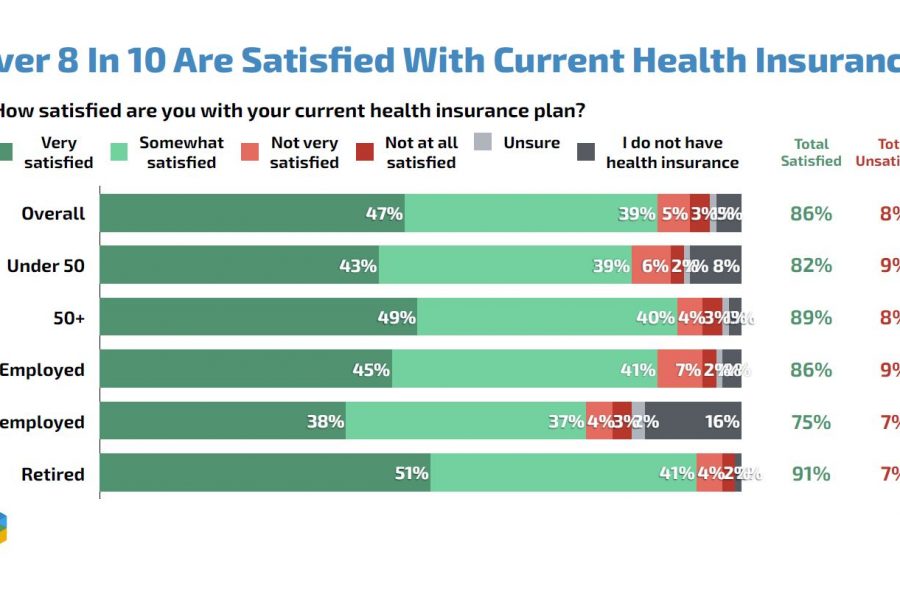Sen. Bernie Sanders, I-Vermont, and proponents of a “Medicare for All” system that would outlaw private health insurance contend that people are not satisfied with their current health care coverage.
But the results of a new national survey commissioned by PRI find that 86 percent of Americans are satisfied with their current health insurance plans, compared to 8 percent who said they were dissatisfied.
Click here to download the complete survey results
When asked how they would rate their current health insurance coverage, 70 percent of those surveyed rated it as good, compared to 20 percent who rated it as adequate and just 6 percent who rated it as poor.
- 71 percent of those who were employed – and who are most likely to have employer-sponsored coverage – rated their coverage as good. In comparison, just 47 percent of those who were unemployed – a plurality of whom (41%) said they were covered by Medicaid – rated their health coverage as good.
When asked why they were dissatisfied with their current health coverage, respondents cited high costs and bureaucratic restrictions from insurers and government:
- 46 percent said premiums were too high
- 45 percent said deductibles were too high
- 39 percent said co-pays were too high
- 28 percent said limited or restricted access to specialists
- 26 percent said too many restrictions for CT scans, MRIs, and other special tests
These results confirm, as PRI’s Sally Pipes has noted, the more Americans learn what single-payer health care would mean for them – higher costs, increased taxes, longer wait times, less access to specialists, reduced availability of care – the more they reject it.
The results also reinforce the need to reform America’s broken third-party health care payment system, as documented in PRI’s Coverage Denied series, which saddles patients with higher out-of-pocket costs, greater exposure to financial risk, and reduced access to care. Reforms to fix the misaligned incentives in the system are needed to ensure the priorities of patients are put first, ahead of government and insurers as the largest payers for care.
When asked what type of health coverage they currently had, 46 percent of those employed had employer-sponsored coverage and 11% bought private insurance on the individual market. Among those unemployed, 41 percent used Medicaid, 12 percent Medicare, 13 percent purchased private insurance on the individual market and 16 percent did not have insurance. 74 percent of retirees said they had Medicare coverage.
Echelon Insights conducted the national survey for PRI from August 19-22, 2022, in English, among a sample of 1,054 voters nationwide determined to be part of the likely electorate for the 2022 election using non-probably sampling. The sample was weighted to population benchmarks for registered voters and 2022 likely voters on gender, age, race/ethnicity, education, region, party, and 2020 president vote adjusted for 2022 turnout probability. The margin of sampling error is +/- 3.6 percentage points.


